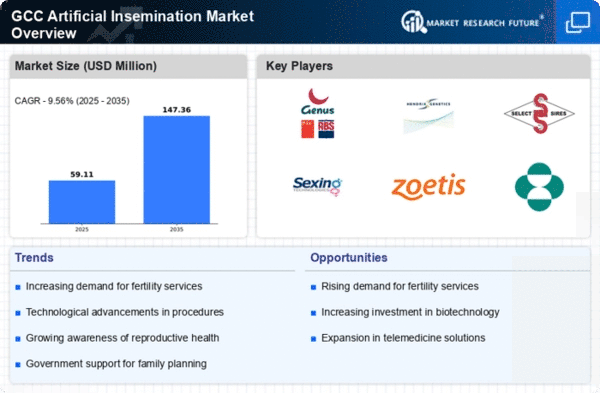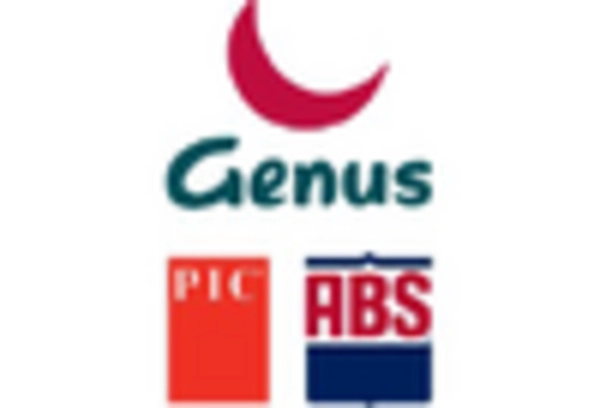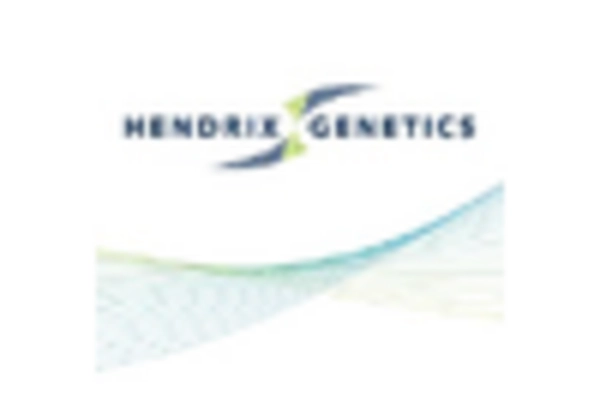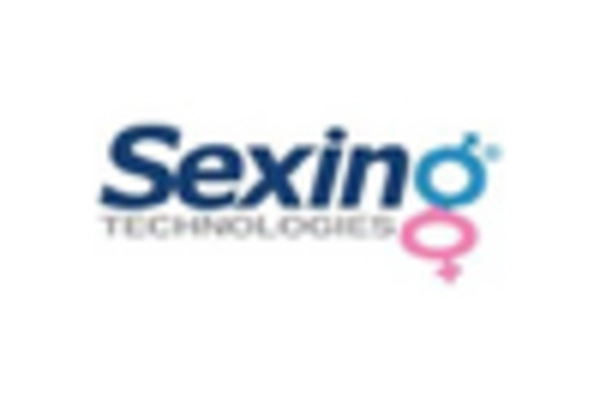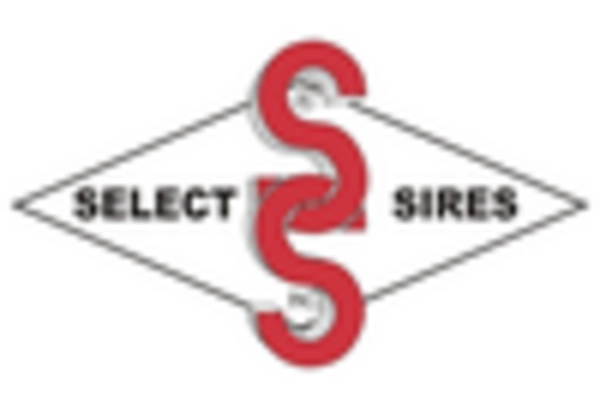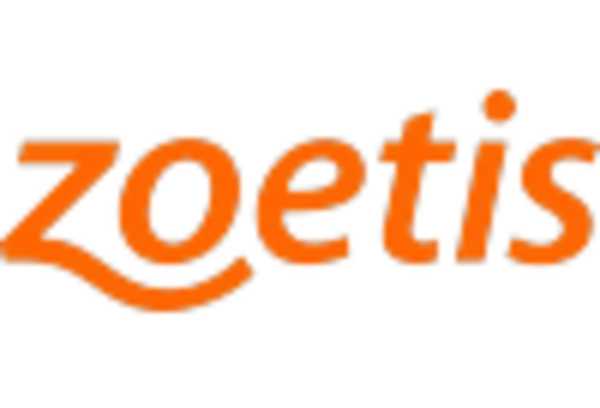Rising Infertility Rates
The increasing prevalence of infertility in the GCC region is a primary driver for the artificial insemination market. Factors such as lifestyle changes, delayed marriages, and environmental influences contribute to this trend. Reports indicate that infertility affects approximately 15-20% of couples in the region, prompting a growing demand for assisted reproductive technologies. As awareness of fertility issues rises, more individuals and couples are seeking solutions, including artificial insemination. This trend is likely to continue, as healthcare providers and fertility clinics expand their services to meet the needs of this demographic. The artificial insemination market is thus positioned for growth, driven by the urgent need for effective reproductive solutions.
Government Initiatives and Funding
Government support plays a vital role in the growth of the artificial insemination market. In the GCC, various initiatives aimed at promoting reproductive health and family planning are being implemented. These initiatives often include funding for fertility treatments and the establishment of specialized clinics. For instance, some governments have allocated substantial budgets to enhance healthcare services, which includes reproductive health programs. This financial backing not only increases accessibility to artificial insemination services but also encourages research and development in the field. As a result, the artificial insemination market is likely to benefit from these supportive measures, fostering a more robust healthcare environment.
Increased Access to Fertility Clinics
The expansion of fertility clinics across the GCC is a significant driver for the artificial insemination market. As healthcare infrastructure improves, more specialized clinics are being established, providing a range of reproductive services. This increase in accessibility allows individuals and couples to seek artificial insemination treatments without significant barriers. Additionally, many clinics are offering competitive pricing and financing options, making these services more attainable. The proliferation of these facilities is likely to enhance public awareness and acceptance of artificial insemination, further stimulating market growth. The artificial insemination market is thus poised for expansion as access to these essential services continues to improve.
Cultural Shifts Towards Family Planning
Cultural attitudes towards family planning and reproductive health are evolving in the GCC, influencing the artificial insemination market. As societal norms shift, there is a growing acceptance of assisted reproductive technologies. This change is particularly evident among younger generations who prioritize family planning and are more open to exploring options like artificial insemination. The increasing number of women pursuing higher education and careers also contributes to delayed childbearing, further driving the demand for fertility treatments. Consequently, the artificial insemination market is experiencing a transformation, as more individuals seek to balance personal aspirations with family goals.
Advancements in Reproductive Technologies
Technological innovations in reproductive health are significantly impacting the artificial insemination market. The introduction of advanced techniques such as intrauterine insemination (IUI) and in vitro fertilization (IVF) has enhanced success rates and patient outcomes. In the GCC, clinics are increasingly adopting these technologies, leading to improved efficiency and effectiveness in artificial insemination procedures. The market is projected to grow as these advancements become more accessible to the population. Furthermore, the integration of artificial intelligence and data analytics in fertility treatments is expected to optimize patient care and personalize treatment plans. This evolution in reproductive technologies is a crucial driver for the artificial insemination market.


